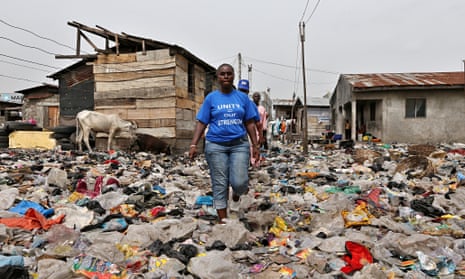Newspapers have not traditionally been the greatest fans of sharing stories with other news organisations. Even nominating a pool of photographers to record an event and share the images can be difficult to arrange.
However, in recent years the Guardian has developed links with other newspapers and organisations that have proved crucial in bringing stories to readers such as the WikiLeaks cables and the NSA revelations of Edward Snowden. More recently the Guardian joined with the International Consortium of Investigative Journalists (ICIJ) in a series of articles investigating HSBC’s private banking subsidiary in Geneva. The series was published in the Guardian, as well as other media organisations.
Partnerships can bring a breadth and strength to an endeavour that few media organisations possess individually but it does require a great deal of focus to mesh organisations successfully.
One recent example of a partnership between the Guardian and the ICIJ, an investigation into the World Bank, ran into problems that were not the ICIJ’s fault. The premise of the story, published on the Guardian’s global development website on 16 April, is that the World Bank has “repeatedly violated its own policies on protecting the rights of indigenous peoples while funding projects that have resulted in nearly 3.4 million slum-dwellers, farmers and villagers losing their land or having their livelihoods damaged over the past decade”. The original headline was “World Bank breaks its own rules as 3.4 million people are forced off their land”.
The World Bank complained within hours of the story going up, and changes were made to the headline and opening paragraph that clarified the meaning of “displaced”, as the 3.4 million faced either losing their land or having their livelihoods damaged. However, the bank believed serious errors remained.
In a formal complaint to the Guardian’s editor-in-chief, which was passed to the readers’ editor to investigate, Jeremy Hillman, the bank’s director of corporate communications, said: “The core allegation in the story is that 3.4 million have been forced from their land through bank-funded programs. This is a sensationalist, misleading and completely inaccurate claim. That figure, even as defined by the group ICIJ who have supplied the story to the Guardian, is for project-affected persons. In other words, it includes a large percentage of people who may have been impacted in some lesser way by a project, such as an easement through their land, and also includes people who may have been identified as potentially affected at an early stage but ultimately were not at all. To be clear, there is no evidence whatsoever that 3.4 million have been forcibly removed from their land.”
The bank followed up with a further letter setting out a total of eight alleged errors. Of these, two were addressed by changes made on the day; I have made a further three amendments as a result of their complaints. But I have rejected two more that relate to the use of the phrase “forced resettlement” and that “1 million people in China have been displaced”. The eighth complaint was that the Guardian should have gone directly to the World Bank rather than rely on the statement issued by the bank in response to the story, which was simultaneously published on the ICIJ website. I agree that would have been good practice.
The Guardian has published the following correction online: “An article about an investigation into World Bank policies on protecting the rights of indigenous peoples contained errors. The headline incorrectly stated ‘World Bank breaks its own rules as 3.4 million people are forced off their land’. In fact the 3.4 million faced either losing their land or having their livelihoods damaged. In addition we also said that World Bank projects ‘have resulted in more than 1.2 million people in Vietnam being displaced’. That should have been ‘economically or physically displaced’. A reference to the work of the Bank’s ombudsman, known as the inspection panel, stated that it ‘tried to quash internal inquiries into projects’. However, there was only one example given where an internal inquiry was closed (World Bank breaks its own rules as millions lose land and livelihoods, 16 April, theguardian.com).”
Hillman said: “We appreciate the opportunity to correct the record, particularly since in the vast majority of World Bank-financed projects people are in fact able to stay on their land. It is important to remember that resettlement happens in every single country in the world. Virtually every highway that has been built, every dam that has been constructed, has required the use of eminent domain laws. Our policy is that if people are resettled under a project we finance, we will assist efforts to improve, or at least to restore, their incomes and living standards.”
What went wrong? The ICIJ had been working on the story for months and had reviewed 6,000 documents, and I can find no fault with our partners’ research or their work. The problems arose at the Guardian’s end where those responsible for writing and editing the story had insufficient time to understand a very complex story, which led to a degree of error that took the shine off a good piece of work. Partnership is not the problem; care with the execution is, however, essential.

